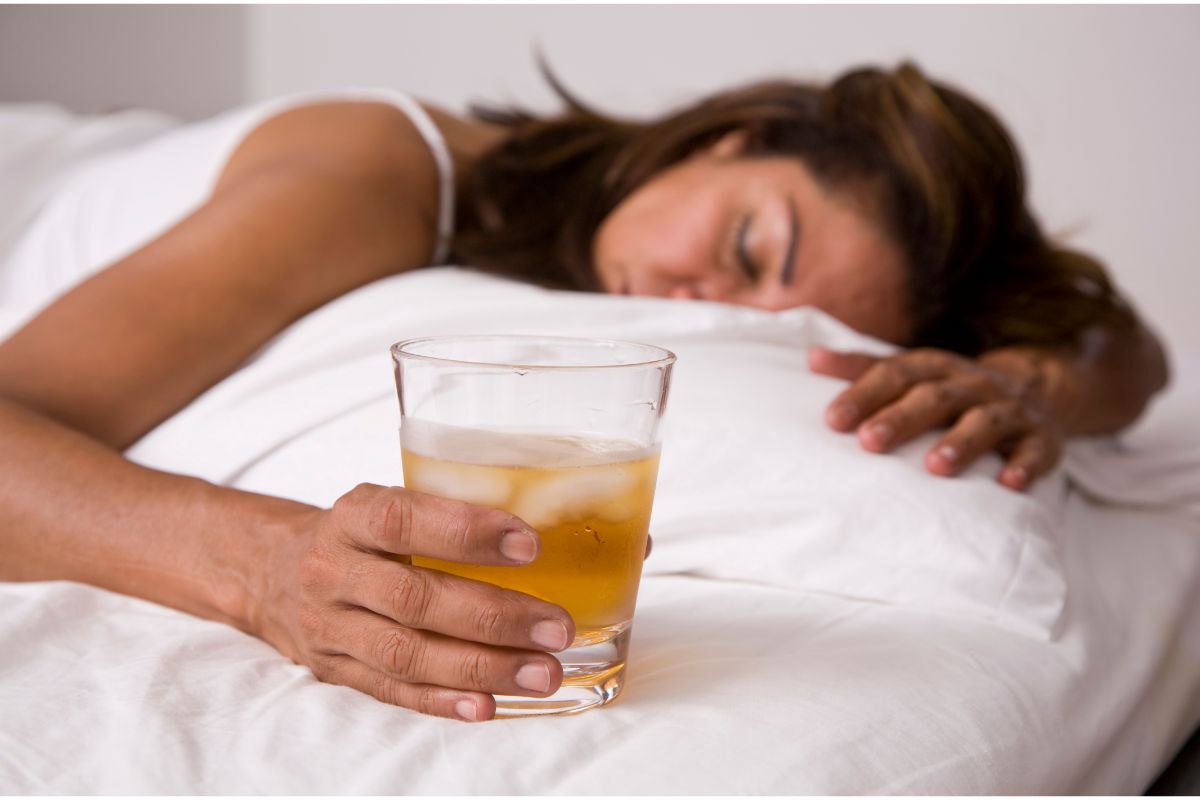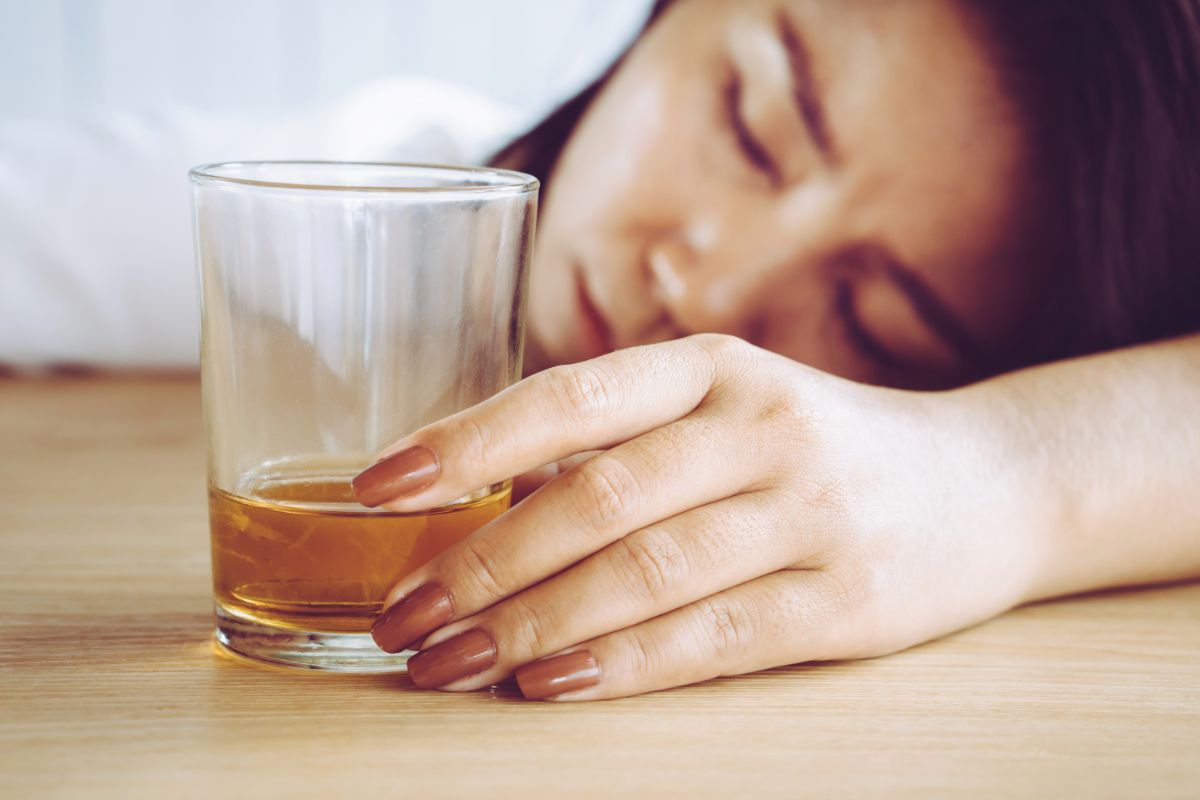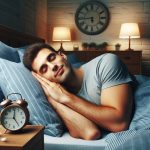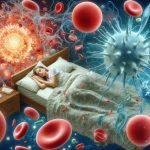It has often been said that consuming alcohol before bed can help you sleep better at night. This advice often has people reaching for an alcoholic beverage before they sleep. However, this myth has been debunked.

Instead, alcohol is known to decrease the quality of sleep. Most are often confused by this as many believe that alcohol (see also ‘Alcohol And Behavior: How Does Alcohol Affect Your Personality?‘) can make them fall asleep quicker.
Well, we are going to clear up the confusion. In this guide, we are going to walk you through all you need to know about alcohol and sleep health.
Alcohol And Sleep Patterns/Quality
As mentioned before, many believe that having some alcohol before they go to bed helps them sleep better.
Most people believe this because after drinking alcohol, they manage to fall asleep quicker.
However, when you think about the sleep you have after drinking alcohol, you’ll notice that you are much more likely to wake up in the middle of the night if you’ve had some alcohol.
So whilst you may fall asleep quicker, the quality of your sleep is diminished. You might be wondering why alcohol ruins your sleep quality, and the answer to this is quite simple. Alcohol affects the chemicals that are needed for a good night’s sleep.
Alcohol affects the quality of your sleep as it disturbs your sleep patterns. It does this by impacting your circadian rhythm.
Circadian rhythm is the natural process that regulates the sleep to wake cycle, they also control your metabolism and other body functions.
Alcohol disrupts the circadian rhythms in your body as it impacts your biological clock’s synchronization.
The biological clock synchronization is important because it helps to regulate our sleeping patterns. Alcohol (see also ‘10 Ways Your Body Heals After Quitting Alcohol‘) impacts this biological clock as it prevents it from picking up on cues such as lights, which helps with our sleep cycle.
Alcohol also increases the chemical adenosine. This chemical helps with sleep as it rises the longer you have been awake.
Since alcohol increases the levels of adenosine, it can lead to you sleeping during times you would normally be awake. This then disrupts your natural sleep cycle and your sleep health.
Alcohol And REM
REM which stands for Rapid Eye Movement sleep is the deepest stage of sleep. This is the stage during the sleep cycle that is considered to be the part of sleep where your brain is most active.
During REM your eyes are moving around but no visual signals are being sent. REM sleep is where you might have intense dreams.
REM sleep is important as it is the part of sleep that allows your brain to learn and process information.
So how does alcohol impact REM sleep? Well, it stops REM sleep from occurring. After drinking alcohol, you might find yourself waking up feeling disorientated.
Many of us blame this on being hungover, however, this can happen after having a few alcoholic drinks.
Since REM sleep is blocked by alcohol, your brain does not process the information that has been received that day.
On top of that, your body has not entered a deep sleep stage which can lead to you feeling incredibly tired.
Alcohol And Insomnia

We have already outlined why alcohol is bad for you in terms of sleeping, but what about those who already struggle to sleep.
Part of the myth that alcohol can help you fall asleep is largely targeted toward those that have trouble sleeping.
Alcohol is classed as a sedative which is why you fall asleep quicker when you’ve consumed it, however, this doesn’t mean you’ll have a good night’s sleep.
Insomnia is a sleep disorder that is defined as someone who consistently has difficulty with falling asleep, remaining asleep, and the quality of their sleep.
Insomnia is particularly troubling as it means the person is constantly tired but unable to sleep.
As mentioned above, alcohol blocks REM sleep and diminishes the quality of sleep. This means that people who have alcohol in their system before sleeping will often experience symptoms associated with insomnia.
In some cases, a cycle begins where the person drinks alcohol to fall asleep but is unable to have a decent quality sleep, so they drink again the next night.
Long-term alcohol abuse has been linked to sleep disorders such as insomnia. For those already suffering from insomnia, drinking alcohol can make their suffering worse.
Studies have shown that those who binge drink are much more likely to suffer from sleep disorders. Overall sleep health is negatively impacted by drinking alcohol (see also ‘Drinker’s Nose — Fact or Fiction?‘).
Alcohol And Breathing (Sleep Apnea)
Sleep apnea is another common sleep disorder. Those diagnosed with sleep apnea often have abnormal breathing when they are sleeping.
They may also stop breathing temporarily for short periods of time during sleep.
Alcohol and sleep apnea are not a good mix. One of the common side effects of consuming alcohol is that it relaxes your body.
Since your whole body relaxes, including the muscles in your throat, alcohol can worsen sleep apnea.
When the throat muscles relax, there is more resistance so many find it harder to breathe.
Not only does consuming alcohol before bed makes conditions such as sleep apnea harder, but it also makes people more likely to snore during the night.
This is again due to the fact that alcohol relaxes your muscles and increases resistance when breathing.
Studies have shown that drinking alcohol increases the risk of people experiencing sleep apnea.
Final Thoughts
To conclude, sleep and alcohol are not a good combination. Regardless of alcohol being a sedative, it has extremely negative impacts on sleep health.
It increases the risk of developing common sleep disorders such as insomnia and sleep apnea. The less severe consequences of consuming alcohol before bed are still likely to make you feel worse in the morning.
So, if you want to improve your sleep health it is best to avoid alcohol if you are already suffering from a sleep condition or limit your consumption of alcohol.
We hope this guide has helped you to understand the relationship between alcohol and sleep health.
- Understanding Male Reproductive Health: A Complete Guide - February 2, 2025
- Simple Healthy Skin Habits for Radiant Skin - December 6, 2024
- Unlocking the Connection Between Nutrition and Mental Health - December 3, 2024








